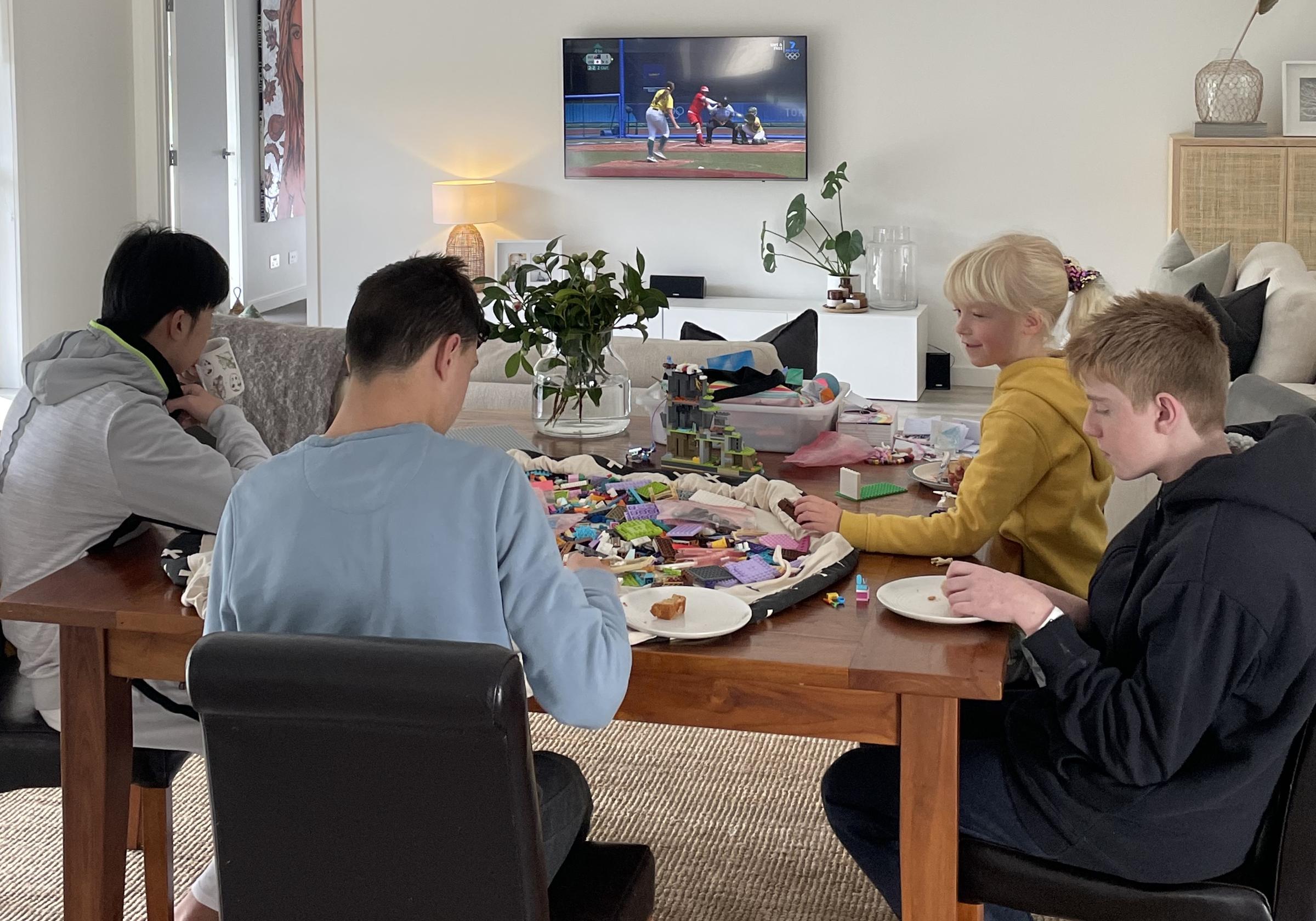Middle Years

Returning to lockdown has a sense of deja-vu. I hope this week has gone smoothly for your family, and that everyone is ok. One positive is, we know what we are doing and students know how to approach learning remotely.
One thing I have noticed in recent weeks, is that some students take a while to settle when they return to face to face classes after a lockdown; we have a high behavioural bar at College and as a result we are setting firm boundaries in the school yard and in class. Feedback from colleagues is that this unsettled behaviour is happening across all school, and it is a sign of the unease that teenagers are feeling. My wish is for all students to finish the year off well.
Core messages:
- Students can learn well at home. We want to make it as seamless as possible yet acknowledge there are inherent challenges.
- Students choose their mindset and engagement.
- The Mental Toughness 4 C's skills are relevant now.
CONTROL… just get on with it approach, calm and positive.
COMMITMENT… stick ability, work hard to deliver on goals… high commitment
CHALLENGE… embrace change and accept risk, sees challenge as opportunity
CONFIDENCE… self belief, belief in your ability to deal with the situation.
- Contact mentors and teachers of you have any concerns. This requires a team effort.
- Each day, set your intentions, for example “I am going to exercise”.
- Try box breathing, this activates the parasympathetic nervous system, and my Year 9 classes are working on this exercise to lower the body’s cortisol levels. https://youtu.be/R3GtOcPmCe4
- Keep sleep routines as normal as possible rather than going to bed late.
- Be gentle and look after yourself, physically, mentally, and socially (connect).
- Keep this in perspective, lockdowns are a temporary disruption. Look for the silver lining.
- We are more resilient than we realise, and resilient people soar despite challenges and hardship. Resilience is under our control, and we can change how we handle setbacks.
Last week I mentioned an article by Melissa Cunningham in The Age (13/8). Here is the full article; it explains the current covid fatigue. Link Notes from a Melbourne psychologist and the power of the 20-second hug (theage.com.au)
“These effects get more significant as lockdowns go on ... When it comes to the impact on the brain, stress and anxiety, these effects are cumulative,” Mr Cheers said. “The brain needs safety and social connection to be well. At the moment, both those things are under threat. It’s not getting easier. It’s getting harder.” Our brains have more difficulty accessing the prefrontal cortex, which is important when we’re trying to make decisions. Being under chronic stress – like that of repeated and prolonged lockdowns – means our brains are constantly having to process stress so the hippocampus, a brain structure embedded deep into temporal lobe that helps learning and memory, is also diminished. “Our brains are being asked to do a lot at a time when they’re depleted,” Mr Cheers said. “We’re being asked to adapt, to pivot, to be creative and these are exactly the kinds of functions that are lost under long-term stress and anxiety.” Mr Cheers said while you were unable to control the stressor (lockdown), you could help your body to complete the stress cycle and process the emotions.
Children can be among the most deeply affected by lockdowns. “The first important thing you can do with kids is to teach them how to recognise their emotions, be able to name them, and then think of something that they should do to help with that,” Mr Cheers said.
Behavioural scientist Jillian Ryan, who has been studying the psychological impact COVID-19, has some simple advice - be kind to yourself. “Lockdown is incredibly stressful, it’s super hard, and everybody’s experience is really different,” the Commonwealth Scientific and Industrial Research Organisation researcher said. “Some people are facing different stresses that others don’t. But the key message is if you’re not acing it, curing the world’s problems, or having a perfectly healthy daily routine, don’t worry. What is done during lockdown can be undone afterwards.”
Dr Ryan said it is important to acknowledge, while the lockdown may be lengthy, it’s a temporary disruption. “If your children have too much screen time on a rainy day, or you struggle to get in your normal amount of fruit and veggies, it’s OK,” she said.
Mrs Julia Winter Cooke
Head of Middle Years
